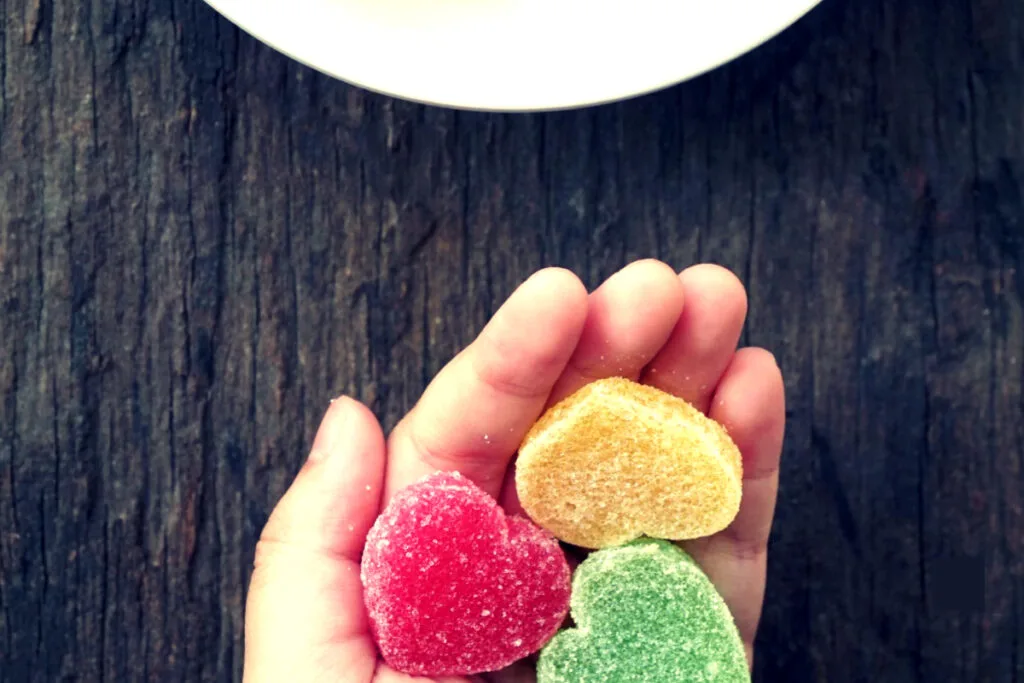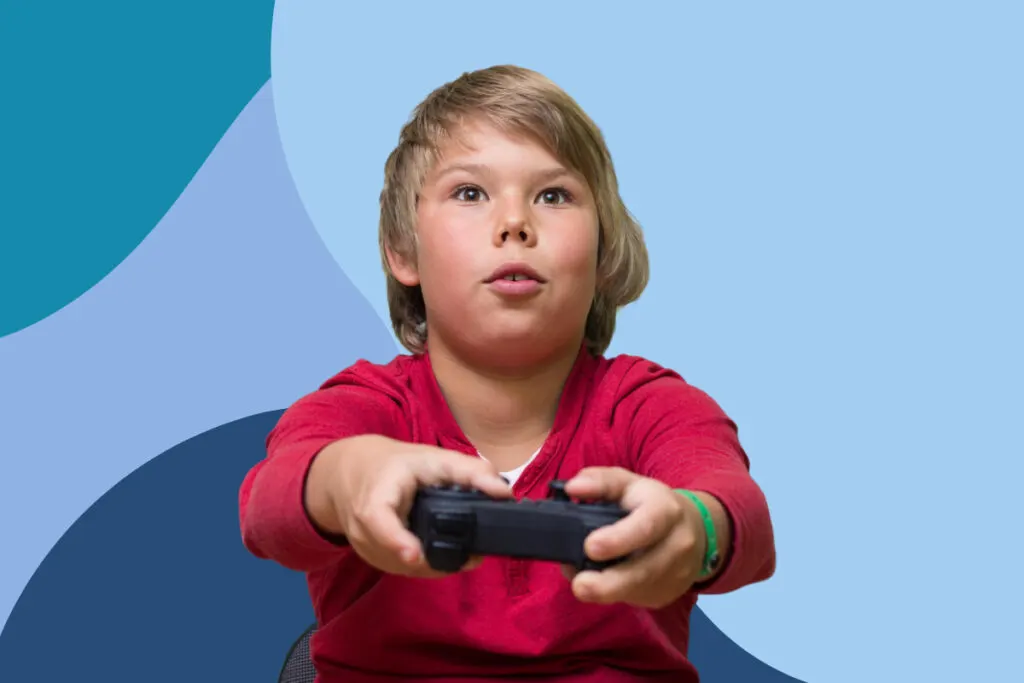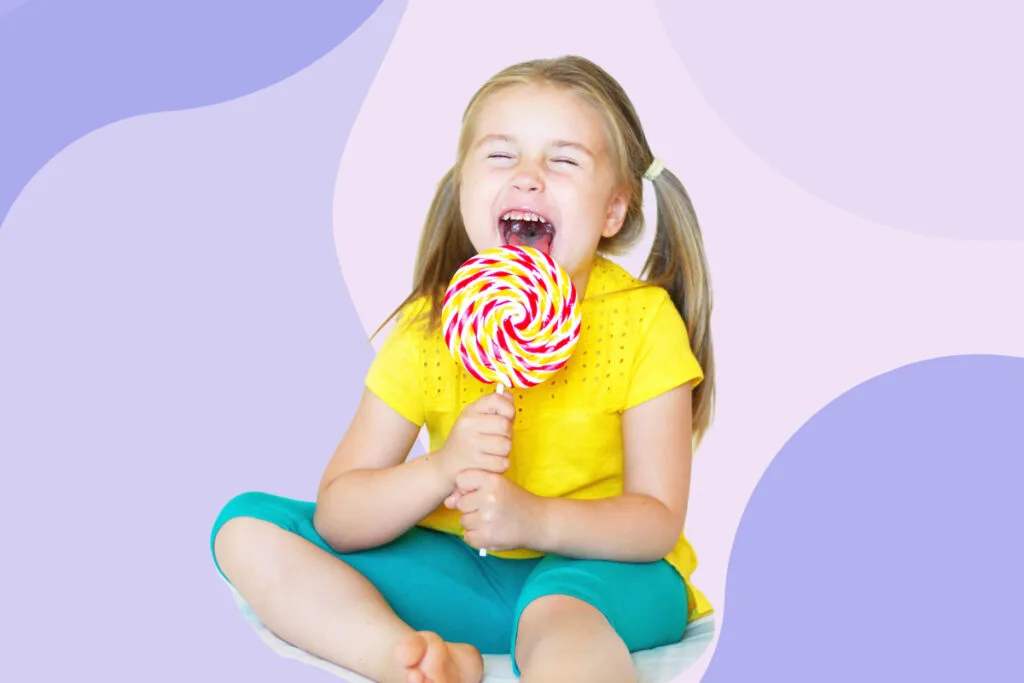TABLE OF CONTENTS
What is Instant gratification
Instant gratification, or immediate gratification, is the urge to satisfy a craving without considering its long-term effects or the bigger picture.
We live in an age of instant gratification.
Unlike previous generations, we get social media sites, YouTube videos, Netflix programs, online shopping, Amazon same-day delivery, and Doordash instant meals in this digital age.
How will all these new technologies and instant gratification affect our youth?

The Marshmallow Test For Immediate Gratification
The marshmallow test is a classic psychology experiment first conducted by researchers Walter Mischel and Ebbe B. Ebbesen at Stanford University in the late 1960s.1
Researchers were trying to identify the processes that underlie self-control in preschoolers when they face temptation.
In the marshmallow experiment, preschoolers had a choice between eating one marshmallow immediately or waiting for a greater reward of two marshmallows later.
The children were then measured on how long they could wait to eat the first marshmallow.
The researchers found that the longer the wait times shown by the preschoolers, the better the outcome in adolescence, such as higher SAT scores, better social cognitive, and more emotional coping.2
They were also rated as having greater self-control, less prone to temptation, more intelligent, and less distracted when concentrating.

Negative Effects of Instant Gratification
Being able to fulfill our desires quickly isn’t always bad.
New businesses are born to respond faster to our needs, provide convenience, and increase productivity.
As a result, millions of people could work from home when there was a worldwide lockdown.
However, putting off immediate pleasure in favor of a better reward, in the long run, is essential for developing self-control.
Short-term gratification habitually leads us to expect immediate results, which can lead us to dangerous outcomes.
Some impulsive behavior aimed at short-lived pleasure may lead to bad health or low quality of life.
For instance, a teenager may engage in risky behaviors such as shoplifting and taking drugs because they give him an immediate reward.3

Causes
Biological and psychological reasons we have a bias for immediate gratification exist.
Evolution favors now
Favoring immediate reward is probably in our genes.
Human beings have an innate desire to meet their basic needs.
Let’s take food as an example.
During times of scarcity, our ancestors, who ate what they found immediately instead of saving for later, which could be stolen by others, were the ones who survived.
Manner, politeness, and planning were not necessary survival skills then.
This behavior, once adaptive to an environment where food supply was scarce, has become maladaptive in the modern world when food is almost always available and self-control is appreciated more.4
Uncertainty
Experience could be another big reason.
Sometimes, the desire for immediate gratification results from being lied to in the past or future outcomes being predictable.
People uncertain about their future life or risk-averse do not want to risk losing it by delaying action.
Lack of coping strategies
Children need to know effective strategies for them to delay gratification.
Those who shift attention away from immediate rewards tend to have longer delayed gratification.5
It was a skill not exhibited by those who couldn’t wait for the second marshmallow.
Insufficient executive functions
Reductions in general executive functions and inhibitory control contribute to the desire to seek immediate satisfaction in some children, especially in the face of positive social cues.6
Lack of self–regulatory skills
In functional magnetic resonance imaging (fMRI), scientists have found that emotional control is even more important than cognitive control in resisting an instant reward.7
Poor emotional regulation skills make it more difficult for an individual to resist satisfying their needs immediately.
Emotional distress
Experiencing emotional distress can weaken one’s self-control.
When people are upset, they prioritize short-term emotion regulation over other long-term goals to feel better.8
Lack of consequential life experiences
When children experience regrettable consequences for taking a risk, they can learn greater self-control to resist temptations in the moment.9
Those who are very young or overprotected do not experience the adverse effects of short-term thinking enough to care about long-term consequences.

Instant Gratification Examples
Our everyday life is full of examples of instant gratification.
- Playing video games now instead of studying for next week’s exam.
- Internet users check their Facebook feeds rather than spending time with family.
- Snooze the alarm to sleep in 5 more minutes, not getting up to have ample time to prepare for work.
- Eating unhealthy food and not sticking to a healthy diet.
- Making impulse purchases rather than saving for retirement.
- A child eats all the candies herself instead of sharing them with friends.
- Dining out instead of cooking to save money.
- Eating at a fast-food restaurant for convenience despite its negative consequences on one’s physical health.
- Using substances such as cigarettes, alcohol, or drugs reduces stress despite their negative health impacts.
- Accept a lottery payout as a one-time smaller payment rather than monthly payments that will add up to much more over time.
- Being a couch potato rather than exercising.
- Kids stare at electronic screens rather than exploring nature.
- Indulge in high-calorie treats instead of dieting to reach weight goals.
- Using punishment as the go-to disciplinary method when children make mistakes instead of spending time to explain and teach them proper behavior.
- Ordering delivery instead of cooking up a meal to save money.
- Bribing or frightening a child into compliance using rewards and punishments instead of explaining right from wrong.
- Buying things on credit cards even though you cannot afford them.
- Procrastinating on a task because it feels easier to do something else right now, even though it means extra work later.
- Kids abandon studying because defying their controlling parents makes them feel good, regardless of the harm to their future.
- Staying late to watch TV and then waking up tired the next day.

References
- 1.Mischel W, Ebbesen EB, Raskoff Zeiss A. Cognitive and attentional mechanisms in delay of gratification. Journal of Personality and Social Psychology. Published online 1972:204-218. doi:10.1037/h0032198
- 2.Mischel W, Shoda Y, Peake PK. The nature of adolescent competencies predicted by preschool delay of gratification. Journal of Personality and Social Psychology. Published online 1988:687-696. doi:10.1037/0022-3514.54.4.687
- 3.Wood PB, Cochran JK, Pfefferbaum B, Arneklev BJ. Sensation-Seeking and Delinquent Substance Use: An Extension of Learning Theory. Journal of Drug Issues. Published online January 1995:173-193. doi:10.1177/002204269502500112
- 4.van den Bos R, de Ridder D. Evolved to satisfy our immediate needs: Self-control and the rewarding properties of food. Appetite. Published online July 2006:24-29. doi:10.1016/j.appet.2006.02.008
- 5.Shoda Y, Mischel W, Peake PK. Predicting adolescent cognitive and self-regulatory competencies from preschool delay of gratification: Identifying diagnostic conditions. Developmental Psychology. Published online 1990:978-986. doi:10.1037/0012-1649.26.6.978
- 6.Wegmann E, Müller SM, Turel O, Brand M. Interactions of impulsivity, general executive functions, and specific inhibitory control explain symptoms of social-networks-use disorder: An experimental study. Sci Rep. Published online March 2, 2020. doi:10.1038/s41598-020-60819-4
- 7.Casey BJ, Somerville LH, Gotlib IH, et al. Behavioral and neural correlates of delay of gratification 40 years later. Proc Natl Acad Sci USA. Published online September 2011:14998-15003. doi:10.1073/pnas.1108561108
- 8.Tice DM, Bratslavsky E, Baumeister RF. Emotional distress regulation takes precedence over impulse control: If you feel bad, do it! Journal of Personality and Social Psychology. Published online 2001:53-67. doi:10.1037/0022-3514.80.1.53
- 9.Romer D, Duckworth AL, Sznitman S, Park S. Can Adolescents Learn Self-control? Delay of Gratification in the Development of Control over Risk Taking. Prev Sci. Published online March 21, 2010:319-330. doi:10.1007/s11121-010-0171-8
